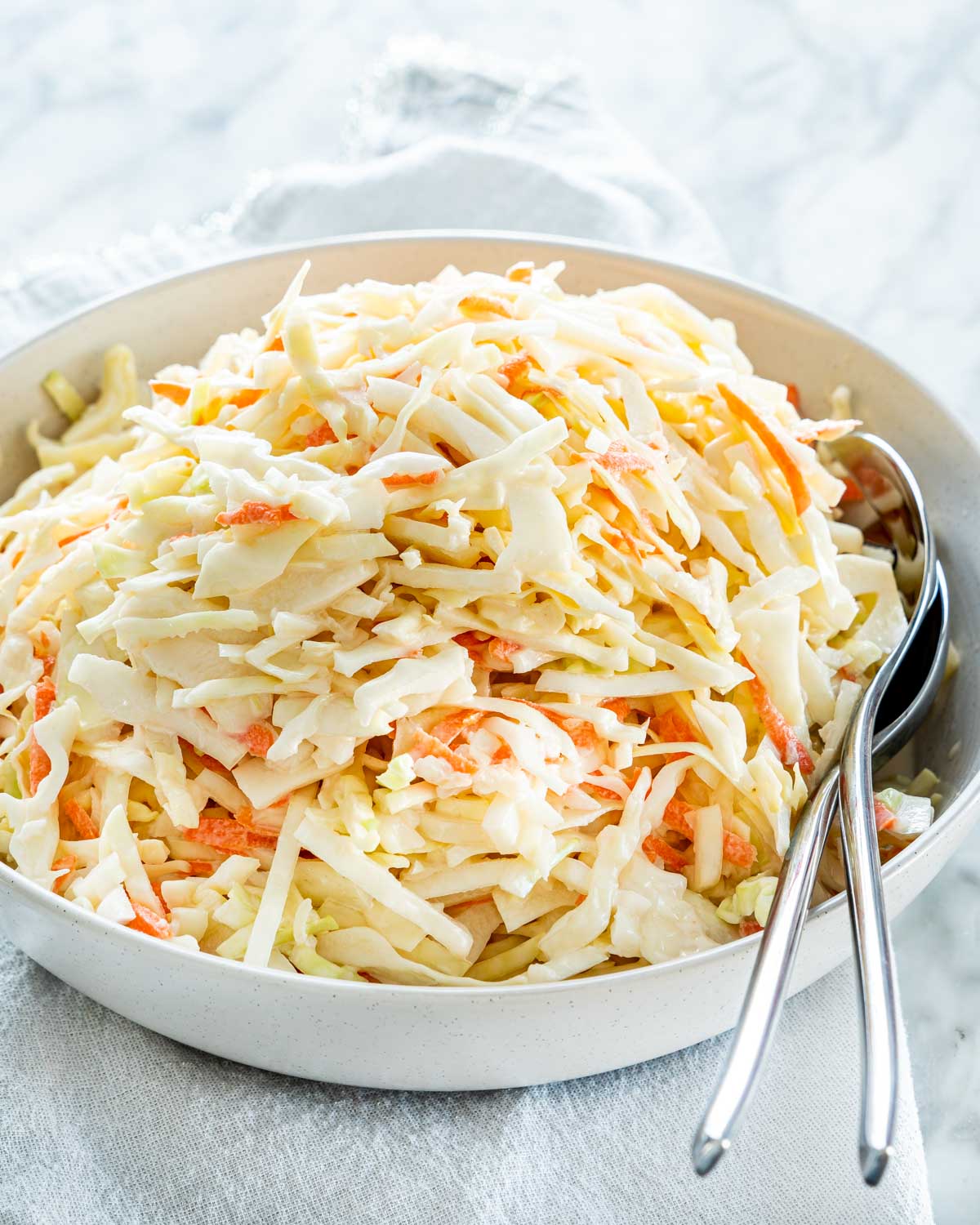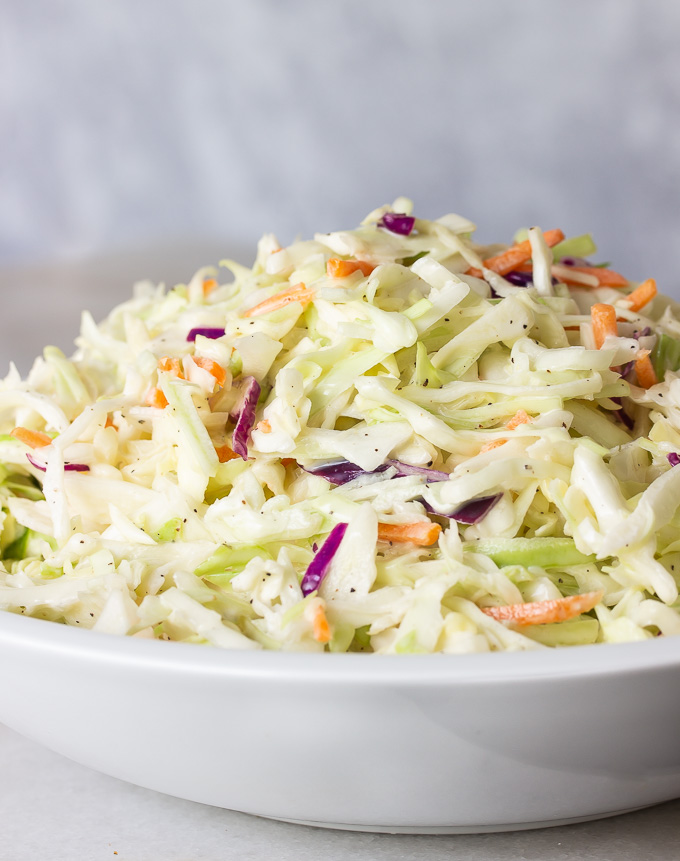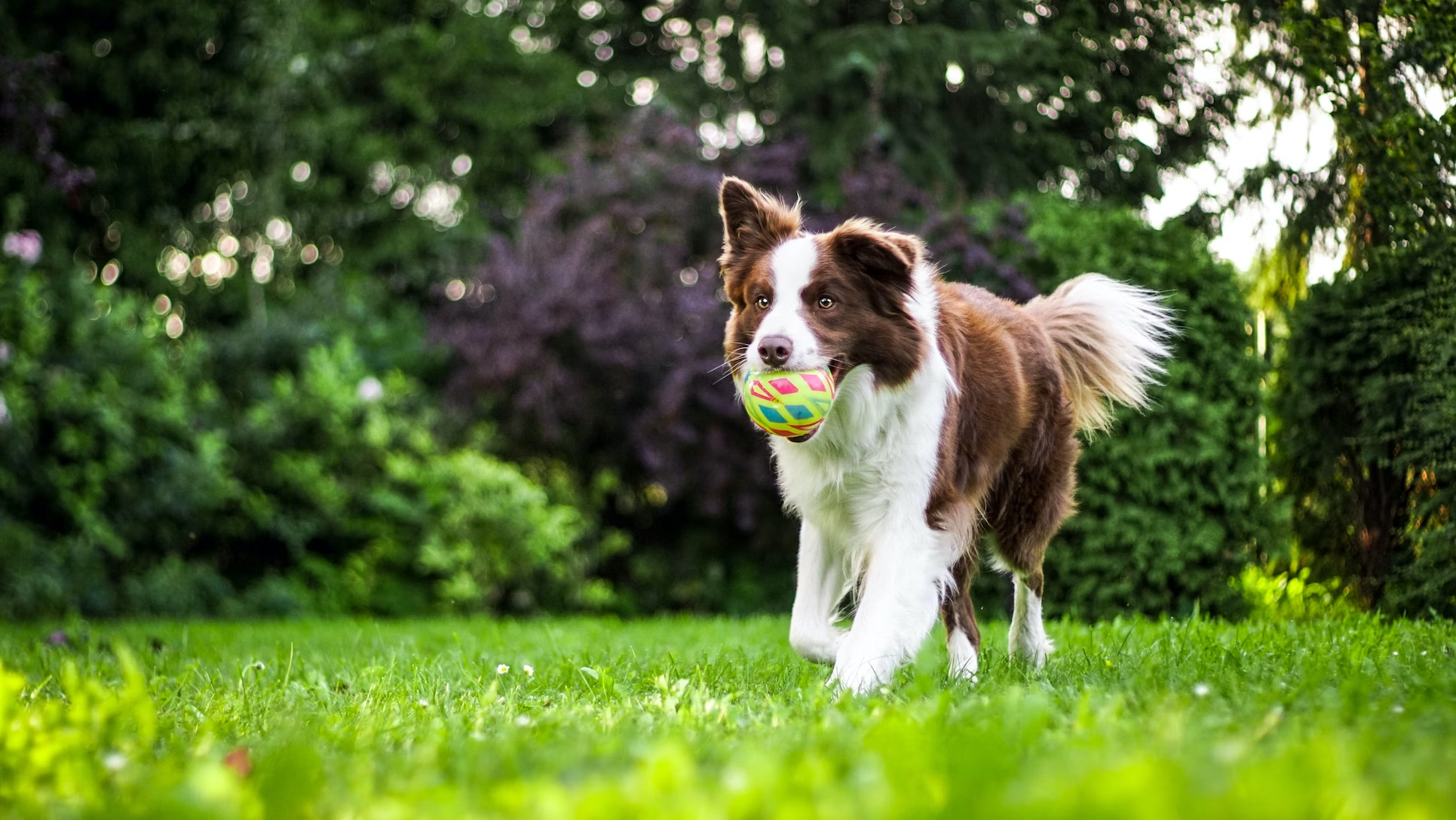As you dig into a tangy, creamy bowl of coleslaw, your pup stares longingly, hoping for a bite. Sharing table scraps is enticing, but is coleslaw’s blend of cabbage, mayo, and spices truly safe for canine consumption? Certain ingredients do pose risks while others offer nutritional benefits. Read on to learn what factors determine if and how dogs can eat coleslaw.
What is Coleslaw?
Traditional coleslaw consists of shredded cabbage and carrots mixed with a mayonnaise-based dressing. But recipes vary widely in ingredients beyond the core cabbage component.
Common coleslaw add-ins include:
- Mayonnaise or cream
- Vinegar or lemon juice
- Onions or chives
- Carrots, apples, or raisins
- Dill, celery seed, mustard or other spices
The specific ingredients impact coleslaw’s safety for dogs. So let’s explore the pros and cons of feeding dogs these common components.
Potential Benefits of Cabbage for Dogs
As the main ingredient, cabbage can provide nutritional value:
- Rich in vitamin C, vitamin K, and antioxidants
- Contains glucosinolates linked to cancer prevention
- High fiber supports healthy digestion
- Promotes a healthy gut microbiome
- Low calorie nutrient density helps manage weight
Cabbage is safe for most dogs and offers a health halo effect when included in moderation.

Potential Issues with Ingredients in Coleslaw
However, other typical coleslaw ingredients carry risks:
Mayonnaise – High fat content may cause pancreatitis. Stick to low-fat versions.
Onions/Chives – Toxicity risk causing anemia in dogs. Avoid any coleslaw with onions.
Carrots – Too much vitamin A can cause liver damage. Limit portion.
Raisins – Grapes/raisins, even in small amounts, cause kidney failure in dogs. Never feed coleslaw with raisins.
Apple seeds – Contain trace cyanide compounds. Core and seed apples before adding.
Xylitol – Artificial sweetener in some recipes is toxic to dogs. Check labels.
The safety of coleslaw depends on preparation and ingredients. In general:
- Choose recipes without onion, raisins, xylitol.
- Core and seed apples.
- Opt for low-fat dressing.
- Small portions minimizes any vitamin A excess.
- Introduce gradually to check for allergies or intolerance.
- Avoid in puppies under 1 year due to developing digestive systems.
- Prevent eating straight from the bowl to limit overindulgence.
With proper precautions, most healthy adult dogs can enjoy a few bites of plain coleslaw on occasion. But some dogs require complete avoidance.

Which Dogs Should Avoid Coleslaw?
Dogs that should never eat coleslaw include:
- Puppies under 1 year old
- Dogs with pancreatitis history
- Dogs with cabbage/mustard family allergies
- Dogs on low-fat diets for weight loss
- Dogs with past grape/raisin or onion toxicity
- Dogs with digestive disorders
- Diabetic dogs due to carrot sugars
If in doubt, consult your veterinarian before sharing any coleslaw with your dog.
Serving Coleslaw Safely to Dogs
When sharing tiny portions of plain cabbage coleslaw without risky add-ins, follow these tips:
- Start with a half teaspoon serving.
- Mix into their regular dog food to reduce richness.
- Refrigerate leftovers promptly. Discard if becomes moldy.
- Adjust portion based on digestive tolerance.
- Avoid eating straight from bowl or can.
- Keep creamy dressings minimal. Wipe mouth after to prevent dermatitis.
- Rinse all prep bowls to remove toxic onion residue.
Even when prepared safely, coleslaw should only comprise a tiny part of your dog’s diet. Stick to dog food for the bulk of nutrition.
Conclusion
While cabbage provides some benefits, most coleslaw recipes contain ingredients like onions, raisins, or cream that pose risks to dogs. With a non-toxic recipe and small portion mixed into their food, most healthy adult dogs can safely indulge in bites of plain coleslaw occasionally as a treat. Check with your vet before introducing new foods. Avoid recipes with known hazardous ingredients and never let your dog overindulge. With some care, you and your dog can both savor this tangy salad!


